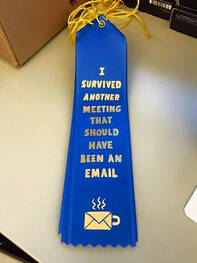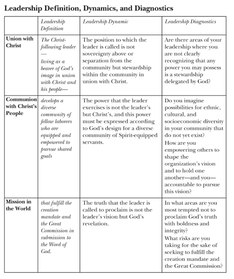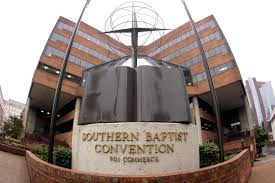 In shocking news to all of us in Florida, the entire country (except us) got hit with ridiculous, generational cold temperatures. It was colder in Chicago than Siberia. And Minneapolis got so cold that the weather radar didn't even have a color for it. If you're reading this in one of those areas affected, stay warm and make sure you check in on your neighbors. Weather events always prompt us as pastors to ask the hard question: should we have services today or not? I'm not proposing a clear-cut, black-and-white answer to this question. Every church has to make the decision for themselves when facing a significant weather crisis. Those who choose to have them will do so trusting that their services go well, and are attended by those who can safely come. Those who choose not to do so trusting that they have made the right decision in people's best interests.
Typically we don't see decisions made on the far ends of the spectrum. Most of us live in the middle. So I want to propose 5 questions to ask when deciding whether or not to have or cancel services during inclement weather. 1. Is there a legitimate public safety crisis? - If you're in an area that deals with hurricanes and one is expected to make landfall on Sunday at 10:00am... you might want to go ahead and cancel. Sometimes there are legitimate public safety issues to factor in to our decisions. If roads are not treated for ice/snow, and local officials are encouraging non-essential people to stay home, there's a legitimate safety issue to factor. Tune in to your area's Emergency Management for warnings and advice. 2. Will there be a risk to our senior adults? - I'll be totally honest, the people who will get out in snow/ice or serious weather threats aren't your families in minivans. It's going to be the guy on his third hip, or the lady with a walker. Our senior adults in our churches are our consistently faithful attenders, and they'll show up when the church is open. 3. How are our facilities? - When it comes to snow and ice, our facilities have to be clear and prepped in order to accommodate people for services. In making any decision about holding or cancelling activities, the state of the facility has to be considered. If your facilities can be cleared and accessible safely for people, then consider having. If not, consider closing. Every church should, depending on where they're located, have on hand the resources and materials (and a list of people with strong backs) to do what's needed to clear. 4. What do our key leaders think? - Group think can often lead to decision paralysis, but if you're the decision maker you need input from those around you. I've been part of paralyzing decision processes, but I've also seen when getting input has been helpful in making decisions. If you ask key leaders or if you have a group who are charged with the decision, it can sometimes make it easier. I've had times where I've been reluctant or hesitant, and when getting input from people around it's made the decision easier. 5. Do we have other options? - Growing up in Kentucky we often would experience all four seasons in a week, sometimes even in a day. When making the decision, you may have the ability to still have some activity, depending on conditions. You'll see this when churches will cancel their early activities and only host their later ones, or those who condense into one service, or who reschedule for the afternoon. If you ask me my philosophy, I tend to be more cautious than most. My thought is that it's better to call off and be wrong than to have and put people at risk. You may not be that way. That's ok. We're not all supposed to be the same. But we do have to ask ourselves these questions every time we're confronted with the question. How do you and your church handle weather issues and making the decision? Share in the comments!
0 Comments
 In my lifetime I don't know if I can name anyone who got really excited about meetings. I think most of us look at meetings the same way we do a trip to the dentist: it's for our good and we need them, but the happy gas (or donuts in the meeting) is the highlight. But it's possible to make meetings enjoyable. I'd argue that our cynicism towards meetings is because the overwhelming experience we've had in meetings has been negative. They've been led poorly. They went nowhere. They never ended. And worse, they could have been an email. If you want to lead meetings well, I want to give five suggestions 1. Start (and End) on Time - Most of the time we spend the opening parts of our meetings catching up or small talking. There's nothing wrong with that. We need to build relationships and strengthen chemistry with the people around us. But that happens outside the meeting time. If your meeting starts at 10, start at 10. If it's scheduled to end at 11, it ends at 11. I've heard of CEOs using a kitchen timer to set the time limits for their meetings. We want to be mindful of people's time, and respectful of their attention during our meetings. 2. Use Memos (or Emails) - It's anecdotal, but 75% of the time I've spent in meetings in my life could have been sent as an email. If there is information to be passed on, do that in an email. Don't take time in meetings to talk about things that could be shared in an email. Use the time in meetings for things that require the meeting. Memos/Emails are a great way to get calendar dates, reminders, etc. out quickly. 3. Have an Agenda - The scariest meeting is the meeting without a plan. It's like handing a bunch of toddlers markers in a freshly painted room. You're asking for trouble. Agendas provide structure, direction, and road markers for your meeting. Agenda items are prepared and initiated in advance. And the agenda is sent out before the meeting so people know what to expect. 4. Solicit Input - One thing meetings allow that emails don't is that you have all the key decision makers and leaders in the same room. Get their input and feedback in the meeting. Don't turn meetings into benevolent dictatorships where you dispense things and expect approval. Meetings that solicit input turn conversational, foster collaboration, and create a stronger team atmosphere. 5. Have an Action Plan - At the end of the meeting, there should be a very clear plan of what happens next. Clear action items should be agreed upon, delegated to the right people, and a system of accountability & follow-up should be put in place. No meeting should ever end with inaction. If it does, you've wasted your time (and everyone else's). These are written really generic, but let's think about particular application to the local church. How can pastors & ministry leaders effectively lead meetings? What do you do in your meetings to lead better meetings?  One of my favorite movies is Office Space, and in the movie the main character has a really rough start to his week (TPS reports, 8 bosses, traffic, and getting static shocked by the door). He has a "case of the Mondays." If you've seen the movie, you have that line stuck in your head now. You're welcome. Pastors aren't immune to a case of the Mondays. We're coming off a very emotional day on Sunday with worship, preaching, meetings, spiritual crises, and more. We've poured everything we had into our message and are on empty afterward. To flip the calendar to a Monday and have to restart everything might sound discouraging and daunting.
Some pastors respond to this by taking Monday off. They're so emotionally drained after Sunday they need a day before they can bounce back. They'll do yard work, projects around the house, and step away from the meat grinder of ministry for a day. It's their Sabbath. If that's you, go for it. Some guys are able to do that and function and process and be ready to roll on Tuesday morning. Everyone has a different way of handling their Mondays. Some people knock out meetings on Monday. Others do all their administrative work and are "peopled out" for a day. It's part of how God has uniquely wired each of us. If I can offer a few suggestions for kicking your case of the Mondays: 1. Write thank you notes - One of the things I've been most blessed by lately is writing thank you notes on Mondays to people who made Sunday awesome. It's helped me be more grateful and appreciative of all that goes in to make Sunday happen. This week it was for people in our children's ministry who jumped in as volunteers to cover for stomach bugs! 2. Follow up with guests - Quick phone calls, emails, texts, and social media contacts are some easy ways to connect with people who visited on Sunday. For me it's a source of joy to talk to people who made it a priority to visit us. I love hearing their story, asking who made their visit special, and what we can do to minister to them. Sometimes Monday is a pastor's worst enemy, when we don't feel like we got anything accomplished on Sunday. But hearing from guests is a quick remedy. 3. Map out the week - I love iCal because it lets me schedule things in blocks and shape out the week, color coded by function. Monday is the time to lay out doctor's appointments, sermon prep time, meetings, ministry commitments, personal activities, and more. And what I love about block scheduling is that if emergencies arise, all I have to do is move the block. 4. Do mindless work - Type out agendas, answer emails, tidy up your office, update spreadsheets, look at attendance numbers, and make Powerpoints. None of those take critical thinking energy, and you can knock out a lot from a weekly to-do list in one day. Whatever and however you do your Monday, do what you need to so your week can thrive and be most faithful and effective in ministry. How do you kick your case of the Mondays?  We hear stories all the time of an athlete playing with a "chip on their shoulder" that pushes them and motivates them to excellence. Tom Brady can still recite the names of every quarterback taken ahead of him in the 2000 NFL Draft, Clemson heard all season about how Alabama was potentially the best team in college football history, and perhaps my favorite of Michael Jordan making up beef with LaBradford Smith in the 1990s. As fans we love watching when athletes play with the chip, especially if they're on our favorite team. It brought me great joy to watch Lamar Jackson light up the NFL after being told he would be a receiver instead of quarterback. I don't think pastors are immune to a chip on their shoulder. But we have to be careful not to allow those chips to become idols in our lives. The difference between a chip and an idol is that a chip fuels motivation for something, but an idol becomes the thing we serve. So a pastor who got a failing grade in his seminary preaching class might use that as a reminder to give his best effort every time preaching. When it becomes an idol is when our motivation for doing well becomes less about God's glory and our effectiveness and more about proving a point. Warning: Unusual transparency ahead For me, I had to take a long look in the mirror and ask if the chips that I had on my shoulder had gotten out of hand. What I thought I was using for motivation as a chip so I wouldn't, as Alexander Hamilton said, throw away my shot, was more and more an idol that would consume me. Instead of wanting to be the best pastor I could be so I could be a vessel of God's glory, I would hear the voices of people I had served under in my head" No matter what you say, no one will listen. You're just a kid. No one is going to read your book. Who are you to have anything to say? At first it pushed me and I had really productive months of writing and research and ministry. But then, like every idol (in this case the idol of being taken seriously) it became a snare. Instead of wanting to be the best minister, I wanted more than anything to be taken seriously. There wasn't joy anymore, it was an ax to grind. So pastors, my call to all of us is three things: 1. Have a short memory - You shouldn't keep your failed exam from seminary and post it on your mirror like Rocky fighting Drago. Forget about it. Move on. Don't dwell on what someone said to you and buy into the lie of critic's math. 2. Stay humble - Ministry isn't about proving a point or proving someone wrong, nor is it about success or fame and glory. It's about faithful plodding. And we can't faithfully plod if we're not humble. 3. Please God, not Man - Your faithfulness as a pastor or ministry leader is what's most important, not the scoreboard. You can get all the accolades and back-pats in the world, but if you're not first/foremost/solely/only seeking to honor God, none of it matters. We're not in this to make people like us or take us seriously. We're in this to point people to Jesus. Have any of you as pastors struggled with a chip on your shoulder that turned into an idol? How'd you smash that idol?  I stayed up way too late Sunday night to watch the end of the Patriots & Chiefs. Thankfully I missed the horrible no-call against the Saints in the first game, or else I'd have gotten sucked way down into the Twitter vortex. By the way, fantastic trolling from the eye doctor offering free exams to the refs. Nice work. But what stuck out the most in watching the Pats win in overtime wasn't that they controlled the ball and kept Mahomes off the field. It wasn't that the Evil Empire once again seemed to get the 50/50 calls. It was that Tom Brady was just as excited about his 9th Super Bowl appearance as he was his first. Think about that for a minute, Brady has been in more Super Bowls than any franchise in NFL history. And for him, that moment wasn't routine. Not to connect everything to football, but in ministry we can so often get consumed by the doing of ministry and the doing of church that we forget to take joy in what we see around us. One of the unique things about ministry leadership is that God gives us, in many cases, a front row seat to what He's doing behind the scenes. We get to see the expressions on people's faces when they trust Christ, we get to hear the stories of broken marriages restored, we get to listen as people share about why they feel at home in our churches. And that should never get old. Thanks Tom Brady for reminding us that we should never get bored with the incredible, even when it becomes routine.  If you've never been exposed to Francis Schaeffer, you're missing out. There's no other way to say it. Schaeffer, with wondrous prose and careful thought, sheds light on so much that Christians have often missed speaking towards, especially the arts and culture. Hat tip to Nathaniel Miller for loaning me his copy of Schaeffer's book Art & The Bible. In short, Schaeffer points out that much of what Christians contribute to the arts is "romanticized Sunday School art." I'm not going to use this to air my grievances with poorly made Christian films, though you can read others' comments here, here, here, here, and here. I'll never forget leaving one and talking with the friend I went with to see it and saying "I mean, I know I'm supposed to like it because we're all Christians, but that was awful." How is it that we, who have tasted redemption, who have been freed from chains of sin and despair, who have experienced the greatest and highest of joys, reduced our expression of that to Thomas Kinkade paintings and feature length sermon illustrations? Where have we missed the point? Schaeffer brings all of this to bear, by writing at length about the role of art, how God used artistry for beauty's sake in the Bible, and how Creation itself bears witness to the artistry of God. So what are the takeaways for pastors and ministry leaders? 1. Pursue excellence - Just because it's for Jesus doesn't mean we should be content to say "well, they tried." We should desire excellence for excellence's sake, because Jesus redeemed our production to be done well. We shouldn't settle for mediocrity in our preaching, in our worship, in our outreach, our programming/events, and more. 2. Don't sanitize - Life doesn't work like it does in the Kinkade painting or lame movie. Sometimes pains don't go away. Sometimes the atheist professor flunks the Christian student. The Bible itself often leaves us with an unsanitized view of life. But what it does give us is the never-ending presence of God, it gives us the surrounding hope of community to bear our pain with us, and it shows us that only in the return of Christ will our tears be wiped away. 3. Embrace creatives - We're very formulaic in much of our expressions of worship or embrace of the arts. It has to fit in a nice neat box. But creatives don't work with that side of their brain. The spreadsheets don't have to be all clean and neat. They say things like "heaven meets earth like a sloppy wet kiss." They're not heretics, they just think differently and look at the world differently than you and I do. That's ok. 4. Stop trying to copy the world - I get so annoyed with pastors who rip off whatever TV show or movie is big at the moment. Stop it. Stop trying to be too clever or cute. I'd extend the same to Judgment Houses that try to be cheap copies of haunted houses. We don't need to copy the world. We have something much greater than anything they can offer or entertain us with. Schaeffer said "The Christian is the one whose imagination should fly beyond the stars." Let's not settle for cheap copies, let's offer something far greater, the wonderful drama and narrative of Scripture.  It's rare that a book sets out to completely unravel a long-held paradigm. It's rarer when that book not only succeeds at unraveling a paradigm but builds one stronger in its place. I'm grateful for the work done by a couple of my doctoral professors, Timothy Jones & Michael Wilder, in their book The God Who Goes Before You: Pastoral Leadership as Christ Centered Followership. If you've studied any level of Christian leadership, you're familiar with how the church has sought to borrow/implement/use/steal/baptize ideas about leadership from the Marketplace. With good intentions, we've read how Jesus was a Situational Leader, or that Jesus was a model of management, or any number of other ways to think about secular leadership ideas in a Christian framework. Like my kids do when they can't make the puzzle piece fit just right, sometimes if you force it to work you can make it work just good enough. Oddly enough, that's also my philosophy when it comes to home repairs. Jones & Wilder work to completely undo our preconceived notions about forcing Marketplace leadership into ministry. Instead, they propose looking long and hard at the storyline of Scripture and the example & teaching of Jesus as the paradigm for Christian leadership.  One question they pose that stuck with me after reading it was "Did Jesus have to be raised from the dead for this truth about leadership to work?" The motivation behind this question is to lead to the development of a distinctly Christian sense of leadership, in particular as it relates to pastoral ministry. My 5 greatest takeaways from this book were: 1. Leading starts with following - If we're not following Jesus, loving Jesus, learning from Jesus, and growing in devotion to Jesus, nothing we do matters. 2. Leadership happens among, not above - If we want to be faithful pastors, we must be shepherds who lead and live among the sheep. We cannot expect to lead without being among people. Trust is our currency, and it accumulates very slowly. Nor can we think ourselves above the people God entrusts us with. 3. It's not about us - We are stewards, not sovereigns. We have a responsibility to love, serve, provide, share, teach, and lead those around us. But it's not about our Kingdom. Jesus doesn't need us to accomplish His mission. 4. Following means trusting God - Our first call as shepherd leaders is to follow Jesus, which means we must live in a way that demonstrates our unwavering trust in His good guidance. It's not always a painless trust (there's a lot to be said about suffering/hardship in ministry), but it's a trust that enables us to let go of our kingdom and live for a Greater. 5. Leading as a shepherd, not CEO, is our model - The idea of spiritual leadership in the church is one of a shepherd who provides, protects, and is present, among the flock. It means we have a task to feed, love, shield, and get our hands dirty among people. There's a lengthy 3 chapter treatment on the Prophet-Priest-King typology that Dr. Jones critiques, which was helpful because I've often found that typology useful in understanding the general tasks of pastoral ministry. If you're not familiar with it, it's basically the Milkstool 2.0 (Preaching, Administration, and Pastoral Care). Unfortunately, like Jones, I've ran across a number of people who pigeon-hole themselves into one and think they can punt the others and be faithful pastors. If you're in church leadership, grab a copy. Take your team through it. And pass it on to others in ministry. They'll find this book one that provokes their thinking about what God has called them to.  On New Years Day while waiting in line at Chick-Fil-A (what better way to start the New Year, black eye peas have nothing on waffle fries), I wrote down on Twitter a few resolutions for my denomination going into 2019. I love being Southern Baptist. I love who we are, what we do, where we stand, and where I believe we're headed. 1. That we would love, pray for, support, send, and give for the sake of the Gospel going to the nations. It's really easy for us to write a check and pass it up the food chain. And I'm not against writing checks, especially big checks, for Lottie and Annie. But if all we do is write a check, we're missing out on what God has called us to as churches and individuals. Taking the Gospel to the nations, near and far, must not be an accessory but a primary for us in how we schedule, plan, budget, preach, and live. 2. That we would look long and hard in the mirror. It's really easy to fire off tweets criticizing our entity heads, our seminaries, megachurch pastors, and anyone else who doesn't do things like we would. But if everyone except you sucks, maybe the problem isn't them. We have to look long and hard in the mirror and examine our hearts. Are we genuinely concerned about biblical faithfulness, or are we jealous of the megachurch pastor or entity head? It's really easy to throw rocks, it's another to be in those shoes. 3. Our devotion to doctrine would not cause us to be callous or cold to lostness or to our brothers who we might have disagreement with. The last 10 years in the SBC have exposed a rift on a number of secondary issues (Calvinism, worship style, church planting, multicampus, and more). And rather than find our unifying call to the Great Commission and our common faith statement, we've dug trenches of tribalism. We must not allow secondary divisions to compromise our commonality. 4. We'd stop complaining about our lack of baptisms or how people aren't attending our worship services and actually do something about it. Again, it's much easier to wring our hands and lament the good ol' days. But the reality is our culture has changed. So have the ways we engage the culture. We cannot expect people to simply attend because we're open. We must engage. 5. That we as pastors would care more about our faithfulness in our churches more than we do our blog hits, Twitter followers, or if our books ever get published. I recognize the dripping irony that I'm doing this on my blog. In conversations with older pastors, one of their observations is that they don't see as strong a commitment to faithfulness in their context. Maybe they're on to something. Our influence serves to multiply our Kingdom impact, but the tail shouldn't wag the dog. 6. That we'd recognize homogeny is never going to happen in the SBC. We're not all going to look alike, worship alike, think alike, or do much alike at all. And that's great. Our diversity is a reflection of the Kingdom as a whole. Our churches will do things different, and we must defer (except in cases of heresy) to a polity of local church autonomy. What brings us together is not that we're all alike, it's that we're together for a coordinated, cooperative mission. 7. That as a number of key roles are filled, we would follow (not blindly) their leadership, and that our institutional trustees would prove the weight of their responsibility to oversee what God has entrusted us. A number of high profile entity positions are still empty, and will presumably be filled in 2019. The people who fill those roles aren't perfect, nor should we expect them to be. That's where we have trustees, who act on behalf of the SBC for the oversight and accountability of our institutions. Those trustees have been given a weighty responsibility, and my prayer is they would continue to prove that. |
Scott M. DouglasA blog about leadership and the lasting legacy of family ministry. Archives
August 2023
Categories
All
|
 RSS Feed
RSS Feed



